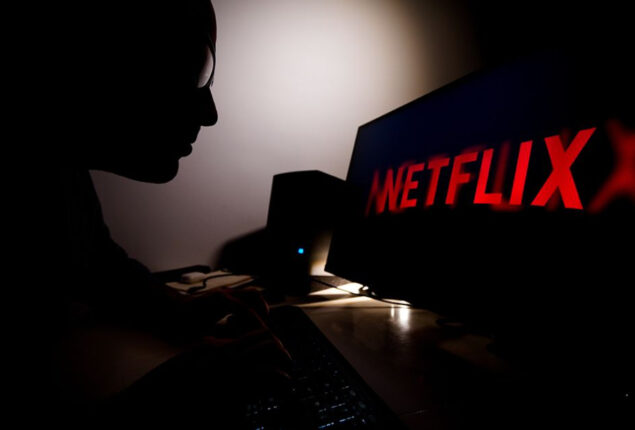Selling the OC: Netflix release date, cast
On August 10, Netflix released the first trailer for its upcoming spinoff...

Netflix envy, Walt Disney Co (DIS.N) restored hopes
Netflix envy, Walt Disney Co (DIS.N) revived optimism that the streaming industry will continue to flourish during an earnings session that seemed to indicate the end of Netflix envy.
Disney stands out among its media competitors, surpassing Netflix last quarter in terms of streaming customers worldwide.
As businesses alter their views on the streaming industry, the recent industry-wide rush to mimic Netflix Inc (NFLX.O) has slowed to a more cautious pace over the past two weeks. Streaming is no longer at the core of their strategy; it is now one of many lines of business.
According to Warner Bros Discovery’s (WBD.O) CEO David Zaslav, “We actually have four, five, or six cash registers.” “And that’s a lot more solid and a lot better than having one cash register in a world where things are changing and there’s a lot of unpredictability,” the speaker continued.
Traditional media corporations highlighted decreasing and stable industries like linear television as profit centers in previous earnings reports as a way to withstand the current economic storm. According to analysts, cash flow has once again taken the lead from subscriber growth as the primary indicator of success.
Hollywood has adopted a new thrifty attitude as increasing inflation threatens consumer spending and the global pandemic’s initial spike in new subscribers wanes.
Additionally, it references Netflix’s downfall. As the company’s growth has slowed, its stock market valuation has decreased to just over $100 billion from a high of over $300 billion in November.
There may be more depressing news to come. Despite worries about the potential of a recession, national advertising spending in the United States dipped for the first time in June after increasing for 15 consecutive months, according to advertising analytics firm SMI.
In a sharp rebuke of previous management’s emphasis on the streaming business, Warner Bros. Discovery, which recently completed a $43 billion merger, announced last week that the company would no longer sacrifice its traditional film and TV businesses to support its subscription streaming service HBO Max.
It canceled high-priced projects like the DC Comics-inspired movie “Batgirl” and the HBO Max science-fiction series “Demimonde,” both of which were being developed by “Lost” creator J.J. Abrams. It also took $825 million in write-offs in the second quarter.
Regarding Warner Bros.’ actions, media analyst Rich Greenfield of LightShed Ventures quipped, “I suppose they’re crying uncle.” They lack the resources to bear the suffering required to compete.
Warner Bros. Discovery is utilizing its strengths, according to Jessica Reif Ehrlich, a media analyst at Bank of America Merrill Lynch.
Media businesses must adopt a comprehensive perspective and work to monetize their increasingly valued content across all platforms, whether they are traditional or digital, she said.
NBCUniversal, a division of Comcast Corp (CMCSA.O), boasted its foresight in not overpaying on its Peacock streaming service. NBCUniversal invested less aggressively than its competitors.
Bob Bakish, the chief executive of Paramount Global (PARA.O), boasted last week about the expansion of the company’s streaming service even as he praised the choice to postpone the release of “Top Gun: Maverick” so the movie could have its world premiere only in theaters. The May 27 release of the summer blockbuster has not yet reached Paramount+.
The decline in the media makes Disney’s performance and outlook, which were revealed along with third-quarter profits on Wednesday, all the more impressive, according to analysts.
According to Paolo Pescatore, an analyst at the research firm PP Foresight, “Disney now has more direct-to-consumer video subscribers than Netflix. This is a critical moment in the streaming battles.” The contest seems to be between two horses.
Disney reported hitting 221 million global streaming customers, surpassing industry leader Netflix’s 220.7 million subscribers for the first time, and confirmed its streaming earnings projections, sending its stock up 6.5%.
Disney, the first of the major media giants to reorganize in order to compete with Netflix, has used its portfolio of internationally renowned entertainment brands and a massive $30 billion in content spending to surpass Netflix.
Analysts cautioned that in the streaming industry, the past may not be a guarantee of the future.
“The fact that previous subscriber growth coincided with the end of some major franchises, including Star Wars and Marvel, poses a significant risk for Disney. How well the upcoming content phase will perform in attracting or keeping members is still quite questionable “said Jamie Lumley, a Third Bridge analyst. Reuters
Catch all the Entertainment News, Hollywood News, Breaking News Event and Latest News Updates on The BOL News
Download The BOL News App to get the Daily News Update & Follow us on Google News.